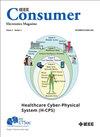Revolutionary Learning: Transformative Pathways in Consumer Technology
IF 4.1
4区 计算机科学
Q1 COMPUTER SCIENCE, HARDWARE & ARCHITECTURE
引用次数: 0
Abstract
Machine learning (ML), a field of study in artificial intelligence, has emerged as essential in revolutionizing consumer technology. Its applications span numerous disciplines, from image processing to natural language retention, advancing the creation of powerful algorithms capable of recognizing complex patterns and extracting valuable information from huge datasets. Deep learning (DL), a subset of ML, has accelerated this evolution further by incorporating neural networks with several layers, enabling hierarchical feature representation and abstraction, thereby boosting the accuracy and complexity of prediction models. In image processing, convolutional neural networks (CNNs) have proven vital, demonstrating novel knowledge in object detection, image classification, and semantic segmentation, consequently driving breakthroughs in augmented reality, autonomous cars, and digital content production. Furthermore, the paradigm of federated learning (FL) has emerged as a promising approach to privacy-preserving ML, enabling collaborative model training across decentralized devices while preserving data confidentiality, thus addressing concerns regarding data privacy and security in consumer-centric applications. As consumer technology continues to evolve, driven by advancements in the above revolutionary learning techniques, the current issue of MCE aims to explore the potential benefits these technologies can bring in an era of personalized, intelligent, and ubiquitous computing experiences.革命性学习:消费技术的变革之路
机器学习(ML)是人工智能的一个研究领域,它的出现对消费技术的变革至关重要。它的应用涵盖了从图像处理到自然语言保留等众多学科,推动了能够识别复杂模式并从海量数据集中提取有价值信息的强大算法的诞生。深度学习(DL)是 ML 的一个子集,它通过整合具有多个层级的神经网络,实现了分层特征表示和抽象,从而提高了预测模型的准确性和复杂性,进一步加速了这一演进。在图像处理领域,卷积神经网络(CNN)已被证明是至关重要的,它在物体检测、图像分类和语义分割方面展示了新的知识,从而推动了增强现实、自动驾驶汽车和数字内容制作领域的突破。此外,联合学习(FL)模式已成为保护隐私的 ML 的一种有前途的方法,它可以在保护数据机密性的同时,在分散的设备上进行协作模型训练,从而解决以消费者为中心的应用中有关数据隐私和安全的问题。随着消费技术在上述革命性学习技术进步的推动下不断发展,本期《计算机教育》旨在探讨这些技术在个性化、智能化和无处不在的计算体验时代可能带来的益处。
本文章由计算机程序翻译,如有差异,请以英文原文为准。
求助全文
约1分钟内获得全文
求助全文
来源期刊

IEEE Consumer Electronics Magazine
Computer Science-Hardware and Architecture
CiteScore
10.00
自引率
8.90%
发文量
151
期刊介绍:
The scope will cover the following areas that are related to “consumer electronics” and other topics considered of interest to consumer electronics: Video technology, Audio technology, White goods, Home care products, Mobile communications, Gaming, Air care products, Home medical devices, Fitness devices, Home automation & networking devices, Consumer solar technology, Home theater, Digital imaging, In Vehicle technology, Wireless technology, Cable & satellite technology, Home security, Domestic lighting, Human interface, Artificial intelligence, Home computing, Video Technology, Consumer storage technology.
 求助内容:
求助内容: 应助结果提醒方式:
应助结果提醒方式:


